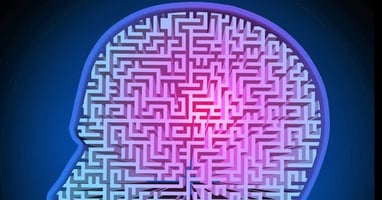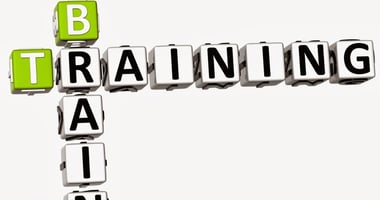Further evidence that cognitive deficits appear in individuals at risk for psychosis well before...
Combined Therapy May Improve Cognition, Reduce Negative Symptoms of Schizophrenia

The combination of two interventions that focus on building social skills, challenging defeatist beliefs, and improving cognitive function may be more effective at reducing negative symptoms of schizophrenia—such as low motivation and lack of interest in life—than an intervention that focused on individual recovery goals, according to a report in Schizophrenia Bulletin.
Eric Granholm, Ph.D., of the University of California, San Diego, and colleagues conducted a small study of adults with moderate-to-severe negative symptoms of schizophrenia or schizoaffective disorder. Fifty-five adults were randomly assigned to either 25 twice-weekly, one-hour manualized group sessions of combined Cognitive-Behavioral Social Skills Training (CBSST) and Compensatory Cognitive Training (CCT) or goal-focused Supportive Contact (SC) for about 13 weeks.
“The [cognitive-behavioral therapy] component of CBSST addresses defeatist beliefs, which have been associated with negative symptoms, … whereas [social skills training] promotes social engagement and behavioral rehearsal,” Granholm and colleagues wrote. “CCT teaches strategies to implement skills, which promotes self-reliance and compensation for cognitive deficits.” The SC intervention focused on individual recovery goals.
The researchers evaluated the severity of participants’ negative symptoms using the Clinical Assessment Interview for Negative Symptoms and the Scale for the Assessment of Negative Symptoms at the beginning of the study, midway through treatment, immediately after treatment, and at a six-month follow-up. Also, the study participants completed cognitive tests and answered questions about daily functioning, defeatist beliefs, and motivation.
The researchers found a greater reduction in negative symptom severity in the CBSST-CCT group compared with the SC group. The CBSST-CCT group also showed greater improvement in verbal learning.
“[P]reliminary findings from the current pilot randomized, controlled trial suggest that CBSST-CCT has the potential to improve negative symptoms and cognitive functioning in individuals with schizophrenia,” they wrote. “A larger investigation of CBSST-CCT is warranted to further examine its efficacy in treating negative symptoms, along with potential mediators and moderators of treatment effects.”
For related information, see the Psychiatric Services article “Confirmatory Efficacy of Cognitive Enhancement Therapy for Early Schizophrenia: Results From a Multisite Randomized Trial.”
(Image: iStock/Minerva Studio)
Register Now: First Town Hall on Social Determinants of Mental Health to Be Held Tonight
Join APA leaders for two town halls featuring presentations on the importance of the social determinants of mental health (SDoMH) in psychiatry, the efforts of the APA Presidential Task Force on SDoMH, and the opportunity to engage with task force members. The first town hall, scheduled for Wednesday, November 3, will explore SDoMH in the context of clinical practice, research, and education.





